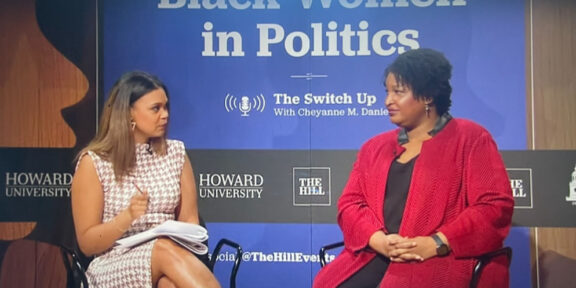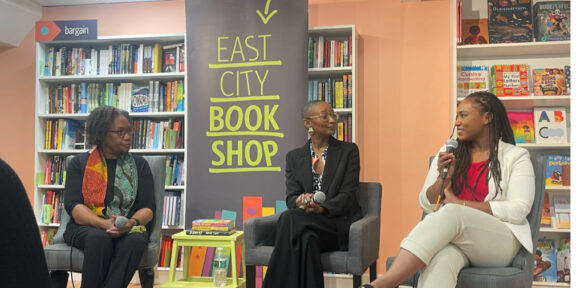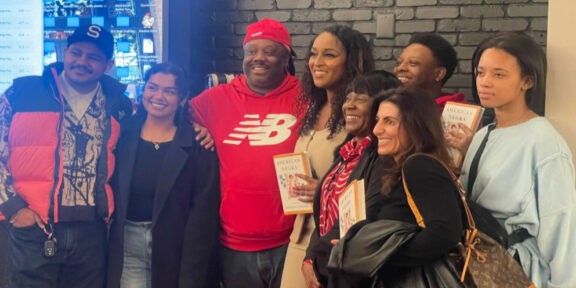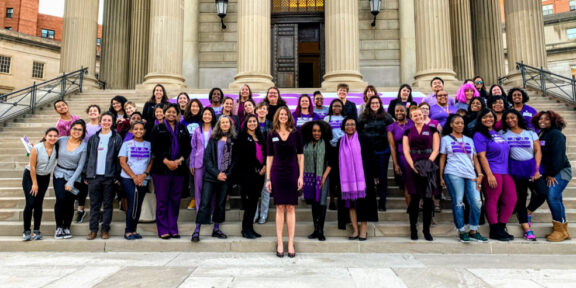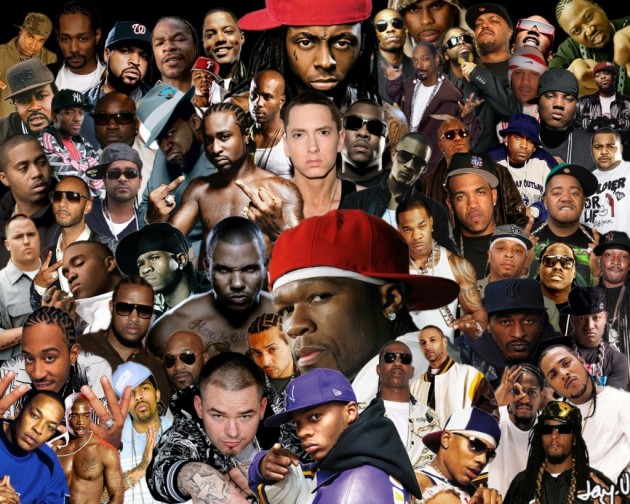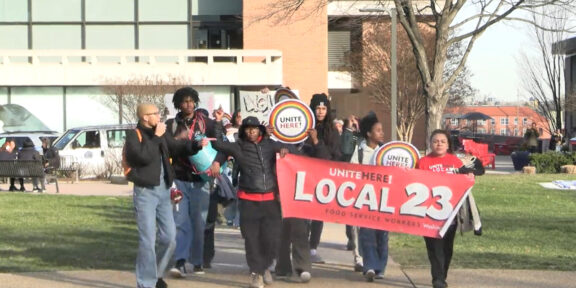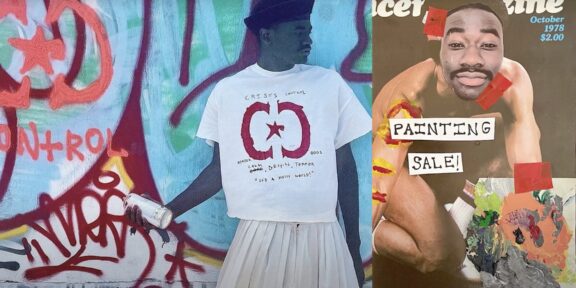By Aniya Greene
The LGBTQ population has risen significantly among Generation Z.
A recent Public Religion Research Institute report highlights the evolving diversity among Americans aged 18-25. It reveals that nearly 28% of Gen Z identifies as part of the LGBTQ+ community, marking an increase compared to previous generations.
With more than 500 anti-LGBTQ+ bills introduced in Congress in 2023, queer people and advocates explain how increased LGBTQ+ representation will affect the upcoming election.
Windsor Bonds is president of Howard University’s Coalition of Activist Students Celebrating the Acceptance of Diversity and Equality (CASCADE), an on-campus organization dedicated to uplifting LGBTQ+ individuals. She says she is using her advocacy to combat unfair discrimination.
“CASCADE provides the campus community regardless of classification, field of interest or major an environment to be one’s most authentic self through unique programming,” she said.
Bonds joined CASCADE as an intern during her freshman year. Three years later, now a senior, she says the organization has been critical in promoting acceptance on Howard University’s campus.
“Safe spaces for young people like CASCADE have been critical to the growth of the community. It’s important for us to provide safe spaces for members of the LGBTQ+ community to fellowship and celebrate one another.”
Bonds states that her generation remains committed to using their power to fight against anti-LGBTQ+ legislation.
“These policies are lighting a fire within the community, energizing the community’s members to be politically engaged and run for offices to overturn these damaging policies,” she continued.
Sean Meloy, Vice President of political programs at the LGBTQ+ Victory Fund, an organization that is dedicated to increasing LGBTQ representation in government, urges Gen Z voters to participate in the upcoming presidential election.
“If Gen Z turns out five percent more than anyone expects, then we will be able to repudiate toxic anti-LGBTQ rhetoric and policies in a way that hopefully stops lawmakers from using our lives as political fodder,” he said.
Members of older generations say that they look to Gen Z with hope and admiration.
“It’s empowering to see,”said Joey Marquart who has worked in public relations for over 20 years. “This generation has more tools at their fingertips than any generation before it.”
As a member of Gen X, Marquart said he had noticed differences between the two generations. He moved to Utah as a child, where he found it difficult to be comfortably out as a gay man.
“Utah was extremely religious and conservative. It made me feel invisible. It felt like there was no room for [LGBTQ+ people] in public life,” Marquart said.
This lack of visibility has shifted amongst Gen Z, according to Bonds. She says that younger adults are more likely to challenge systems of oppression and marginalization compared to previous generations.
“Older generations, especially Generation X and Elder Millennials tend to have a ‘if it’s not broken, it doesn’t need fixing’ mindset, staying satisfied with status quo unless it directly affects them,” she said.
Challenging the status quo remains a key aspect for the 2024 presidential election for young adults like Bonds. She says that, for her, the value of maintaining political agency through voting is paramount.
“Get active. Write letters to your elected officials at every level of government,” Bonds said. “Educate yourself on the seats up for re-election and candidates whose values and interests align with your own to make an informed vote come primaries and the election in November.”


